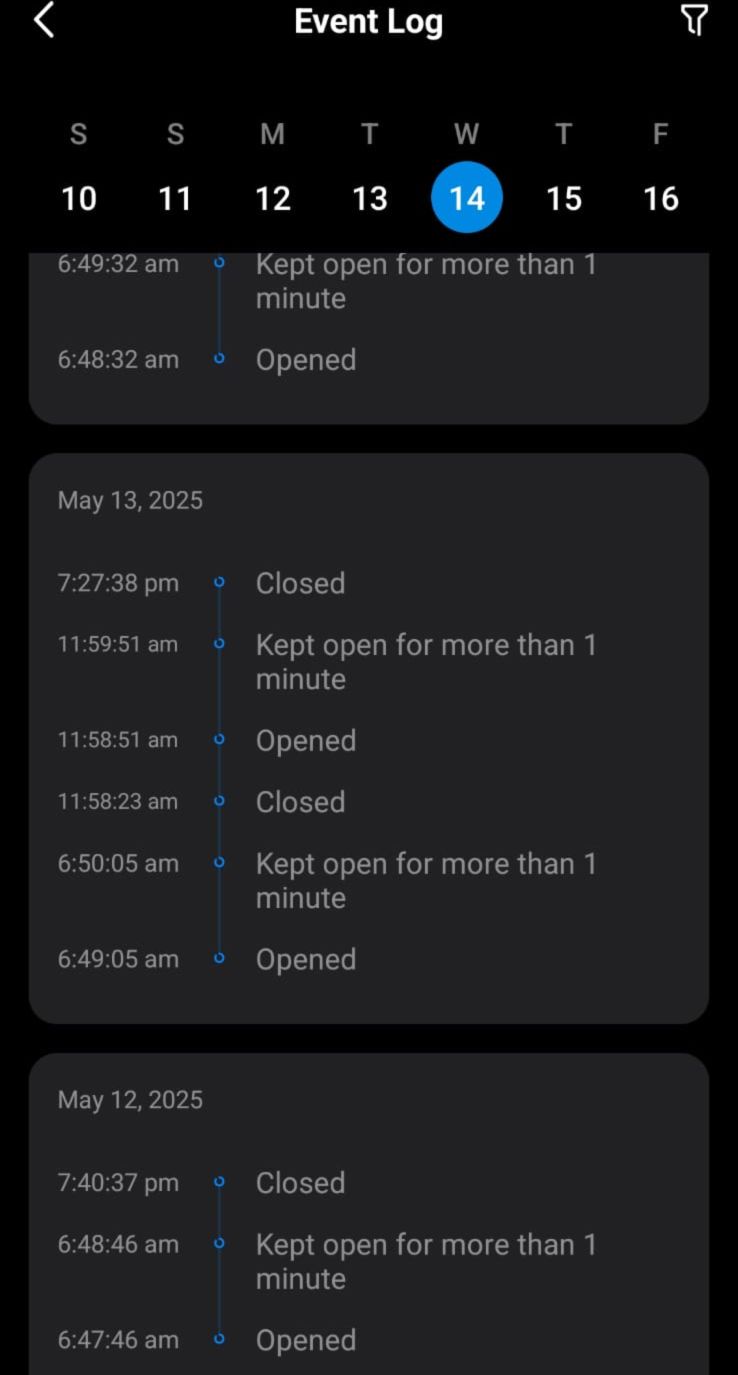
Every morning, at precisely 6:49 a.m., my door sensor records me opening the door without fail.
When I first noticed this, I smiled. People have always told me I’m punctual, and the sensor data seemed to prove them right. But the truth is, it’s not some superhuman ability; it’s by design. I thrive on routines, and I deeply believe that time is our most precious asset.
But here’s where things get interesting.
Looking at that little log of my door’s activity made me realise something: you can believe in all the productivity hacks, leadership quotes, or motivational advice in the world, but unless you follow through with consistency, constant action, and apply it in your personal life, it’s useless.
It’s easy to measure discipline at work deadlines met, emails replied to, and meetings attended. But what about when nobody is watching? What about your personal life?
Because here’s the truth: discipline doesn’t exist in a vacuum. It flows both ways. What happens in your personal life will show up in your work, and vice versa.
The Trap of “Selective Discipline”
At the office, I can live by time stamps. I know when a meeting starts, when a task is due, and how long I can dedicate to a project. But at home? That’s where things often fall apart.
It starts small. Maybe I stay up late watching TV. Or I scroll endlessly on my phone at odd hours, convincing myself it’s “just 10 more minutes.” Those little slips don’t seem like a big deal, but they always catch up with me.
The next morning, I feel sluggish. My mind is foggy. My carefully planned schedule feels heavier than usual. And the worst part? I’m tempted to blame my work for my tiredness, when in reality, it started with an undisciplined personal choice.
This is what I call selective discipline, being structured and reliable in one area of life while being careless in another. The problem? You can’t separate them. Eventually, the cracks spread.
Why Habits Are Interconnected
Think about it. If you eat heavy food late at night, it impacts your sleep. Poor sleep affects your energy the next day. Low energy affects your focus, patience, and productivity. Soon, you’re not just struggling with a “personal” habit, you’re struggling at work too.
The same is true in reverse. If your work is full of bad habits, like delaying tasks, multitasking too much, or avoiding hard talks, those habits follow your personal life. Soon, you may skip chores, neglect self-care, or miss moments with loved ones, without even realising it.
That’s because discipline is a system, not a silo. Your habits don’t respect boundaries. They’re like water, they flow into every corner of your life.
The Power of Asking the Right Questions
If you’re feeling drained, lost, or overwhelmed, here’s something I’ve found helpful:
Pause and ask yourself two questions:
- What habit in my work life is causing problems? Maybe you’re checking emails every five minutes instead of blocking focused time. Maybe you’re saying “yes” to too many meetings.
- What habit in my personal life is keeping me trapped? Maybe it’s the late-night screen time. Maybe it’s skipping exercise. Or maybe it’s neglecting rest because you think productivity only comes from constant work.
Most times, the problem isn’t that you’re not capable; it’s that one small habit is quietly bothering you.
Real Success Comes from Small Steps
Once you find the problem, the solution isn’t about a dramatic overhaul. It’s about combining consistent effort with problem-solving.
For example:
- If your evenings are stressful, create a small nighttime routine: no screens after 10 p.m., read for 15 minutes, and sleep.
- If your mornings feel rushed, lay out clothes, prep breakfast, or write a short to-do list the night before.
- If work feels overwhelming, try the “one big thing” approach: identify the single most important task and get it done first.
Trust grows when you are consistent with your actions. Problems will always show up, but solving them keeps your path clear.
What Keeps My Life in Balance
Personally, a few habits have been game-changers:
- Morning door check (yes, the one at 6:49 a.m.): It sets the tone that the day has officially begun.
- No phone for the first 30 minutes of the day: Keeps me grounded and intentional instead of reactive.
- Dedicated family time in the evening: It reminds me that success isn’t just professional, it’s also personal.
- Reflecting before bed: A quick mental check of what worked, what didn’t, and what I can improve tomorrow.
The smallest steps lead to the biggest progress. Discipline isn’t about being rigid or controlling. It’s about living in alignment, where your work habits and personal habits build on each other. That’s how you create lasting balance and real growth in both areas of life.
So, the next time you feel like you’re running in circles, don’t just push harder at work. Step back and ask:
What habit is silently draining my energy?What small shift can I make today to change it?
Because discipline doesn’t just make you better at work. It makes you better at life.
What are some healthy habits that keep you grounded? I’d love to hear yours.

The Right Way to Take Risks: Lessons From My Journey

The Role of Patience in Achieving Success in Healthcare Technology

How Job-Hopping Slows Your Progress and What to Do Instead
